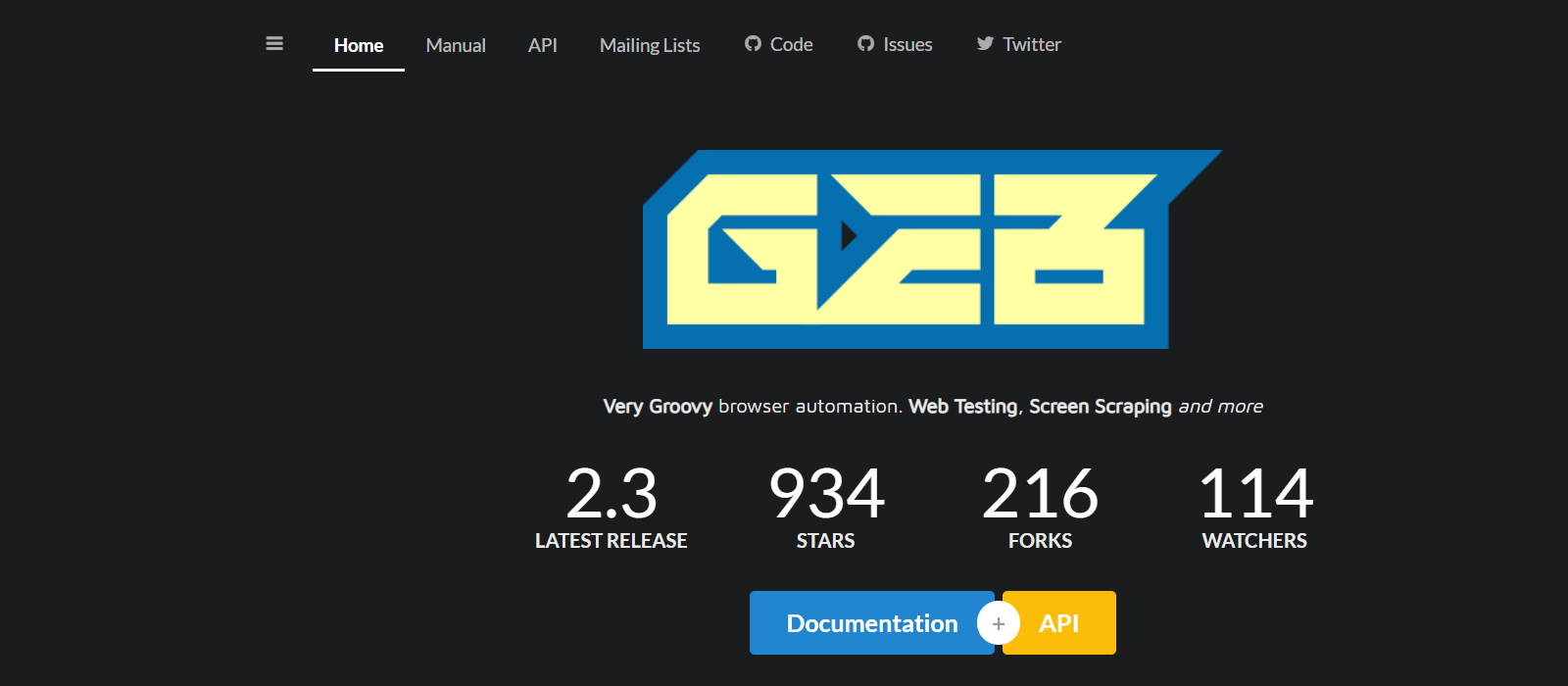Reveal my Asciidoc
a deep dive into presentation-as-code
2020-01-09 - Benoit COUETIL
Introduction
Standard Asciidoctor capabilities are shown in this presentation.
The current presentation shows advanced Asciidoctor / Reveal.js capabilities, mostly helping going deeper in the everything-as-code devOps principle.
Fewest non-generated images
Simplest source code
Fewest reveal.js or Asciidoctor fork (none so far)
Reveal.js plugins
The standard Asciidoctor / Reveal.js include the Zoom plugin with Alt+Click.
Some plugins have been added in the toolbox, see menu for shortcuts :
Menu plugin with to navigate through the ToC, view keyboard shortcuts, change theme and transitions.
Chalkboard plugin, with to display a chalkboard and to write directly on slides.
Title Footer plugin to display the title at the top.
Notes Pointer plugin to point both on speaker notes and presentation window.
Spotlight plugin to show a spotlight.
Skip Fragments plugin to skip fragments (slide steps).
Chart-as-code
We enable chart-as-code with a modified version of chart-block-macro extension.
It’s based on C3JS, a layer on D3JS to draw charts easily, with nice mouseover animations.
Here are some examples.
Pie chart
What do you believe is the number one thing a compagny can do to improve code quality ?
Source
[chart,pie,order=null,legend=right]
....
Code Review,27
Unit Testing,19
Functional Testing,13
Continuous Integration,12
Integration Testing,9
Detailed Requirements,7
Static Analysis,3
Training/On-boarding,3
User Stories,2
Other,5
....Bar chart
Source
[chart,bar]
....
data1, 30, 200, 100, 400, 150, 250
data2, 130, 100, 140, 200, 150, 50
data3, 130, -150, 200, 300, -200, 100
....Horizontal bar chart
What are the main benefits of code review in 2018 ?
Source
[chart,bar,horizontal=true,x-type=category,data-labels=true,y-label="% answered"]
....
x, Improved software quality, Sharing knowledge across the team, Adherence to coding standards/conventions, Ability to mentor less experienced developers, Increased collaboration, Reduced project time/costs, Ability to comply with regulatory standards, Internal audits, Ability to set expectations, Enhanced customer satisfaction/retention, Enhanced mobility of code, Strengthen competitive advantage, ISO/Industry certifications
Interviewed developers using it,90,73,59,57,52,37,31,28,28,26,26,20,16
....Combination
Multiple data types at once (using inline JS)
Source
++++
<div id="combi"></div>
<script type="text/javascript">
c3.generate({
bindto: '#combi',
size: { height: 500, width: 1000 },
data: {
columns: [
['data1', 30, 20, 50, 40, 60, 50],
['data2', 200, 130, 90, 240, 130, 220],
['data3', 300, 200, 160, 400, 250, 250],
['data4', 200, 130, 90, 240, 130, 220],
['data5', 130, 120, 150, 140, 160, 150],
['data6', 90, 70, 20, 50, 60, 120],
],
type: 'bar',
types: {
data3: 'spline',
data4: 'line',
data6: 'area',
},
groups: [
['data1','data2']
]
},
color: {
pattern: ['#B11E3E','#444444','#D6D6B1','#53A3DA','#8DBF44','#888888','#FFE119','#000075','#E8575C']
}
});
</script>
++++Diagram-as-code
All these architecture diagrams use PlantUML, with a custom skin to fit the theme.
Sequence diagram

Source
[plantuml, rma-sequence-diagram, svg]
....
participant User
User -> A: DoWork
activate A
A -> B: << createRequest >>
activate B
B -> C: DoWork
activate C
C --> B: WorkDone
destroy C
B --> A: RequestCreated
deactivate B
A -> User: Done
deactivate A
....Use case diagram

Source
[plantuml, rma-use-case-diagram, svg]
....
left to right direction
actor developer
database repo as "central\nrepo"
agent jenkins as "Jenkins"
rectangle admin as "Gerrit / Gitlab" {
agent ui as "front"
database repo_local as "local\nrepo"
}
developer --> ui : push
ui --> repo_local : push
ui -left-> jenkins: "\npush "
ui ..> repo : replication
....Class diagram

Source
[plantuml, rma-class-diagram, svg]
....
abstract class ArrayList {
Object[] elementData
size()
}
enum TimeUnit {
DAYS
HOURS
MINUTES
}
Interface BaseClass
namespace net.dummy {
.BaseClass <|-- Person
Meeting o-- Person
.BaseClass <|- Meeting
}
namespace net.foo {
net.dummy.Person <|- Person
.BaseClass <|-- Person
net.dummy.Meeting o-- Person
}
BaseClass <|-- net.unused.Person
....Activity diagram

Source
[plantuml, activity-diagram, svg]
....
(*) --> "Initialization"
if "Some Test" then
-->[true] "Some Activity"
--> "Another activity"
-right-> (*)
else
->[false] "Something else"
-->[Ending process] (*)
endif
....Component diagram

Source
[plantuml, rma-component-diagram, svg]
....
package "Some Group" {
HTTP - [First Component]
[Another Component]
}
rectangle "Other Groups" {
FTP - [Second Component]
[First Component] --> FTP
}
cloud {
[Example 1]
}
database "MySql" {
folder "This is my folder" {
[Folder 3]
}
frame "Foo" {
[Frame 4]
}
}
[Another Component] --> [Example 1]
[Example 1] -right-> [Folder 3]
[Folder 3] --> [Frame 4]
....State diagram

Source
[plantuml, rma-state-diagram, svg]
....
[*] -left-> State1
State1 -left-> State2 : Succeeded
State1 --> [*] : Aborted
State2 --> State3 : Succeeded
State2 --> [*] : Aborted
state State3 {
state "Accumulate Enough Data\nLong State Name" as long1
long1 : Just a test
[*] --> long1
long1 --> long1 : New Data
long1 --> ProcessData : Enough Data
}
State3 --> State3 : Failed
State3 --> [*] : Succeeded
State3 --> [*] : Aborted
....Work Breakdown Structure

Source
[plantuml, wbs, svg]
....
@startwbs
* Business Process Modelling WBS
** Launch the project
*** Stakeholder Research
*** Implementation Plan
** Design phase
*** AsIs Processes Completed
****< AsIs Processes Completed1
****> AsIs Processes Completed2
***< AsIs performance metrics
***< Identify Quick Wins
@endwbs
....Timing diagram

Source
[plantuml, timing, svg]
....
'skinparam backgroundColor white # does not work
robust "Web Browser" as WB
concise "Web User" as WU
WB is Initializing
WU is Absent
@WB
0 is idle
+200 is Processing
+100 is Waiting
WB@0 <-> @50 : {50 ms lag}
@WU
WU -> WB : URL
0 is Waiting #white
+500 is ok #white
@200 <-> @+150 : {150 ms}
....Mind Map

Source
[plantuml, mindmap, svg]
....
@startmindmap
* Debian
** Ubuntu
*** Linux Mint
*** Kubuntu
*** Lubuntu
*** KDE Neon
** LMDE
** SolydXK
** SteamOS
** Raspbian with a very long name
*** <s>Raspmbc</s> => OSMC
*** <s>Raspyfi</s> => Volumio
@endmindmap
....Timeline-as-code
1997 - Mondrian (Google)
2002 - Codestriker (IBM)
2003 - Rietveld (Google)
2004 - Gerrit (Google, Android, Eclipse, OpenStack, GWT, IBM…)
2007 - Crucible (Atlassian)
2007 - Phabricator (Facebook, AngularJS, Quora, Uber)
2008 - Github
2011 - Gitlab
2012 - CodeFlow (Microsoft)
Source
[.timeline]
* *1997* - Mondrian (Google)
* *2002* - Codestriker (IBM)
* *2003* - Rietveld (Google)
* *2004* - Gerrit (Google, Android, Eclipse, OpenStack, GWT, IBM...)
* *2007* - Crucible (Atlassian)
* *2007* - Phabricator (Facebook, AngularJS, Quora, Uber)
* *2008* - Github
* *2011* - Gitlab
* *2012* - CodeFlow (Microsoft)To reveal lines as fragments, use [%step] and put the [.timeline] before the title. See the result on next slide.
Skip fragments with PageDown / PageUp. |
Timeline-as-code fragmented
1997 - Mondrian (Google)
2002 - Codestriker (IBM)
2003 - Rietveld (Google)
2004 - Gerrit (Google, Android, Eclipse, OpenStack, GWT, IBM…)
2007 - Crucible (Atlassian)
2007 - Phabricator (Facebook, AngularJS, Quora, Uber)
2008 - Github
2011 - Gitlab
2012 - CodeFlow (Microsoft)
Pyramid-as-code
Continuous deployment
Continuous reporting
Pre-commit pipeline
Continuous integration/testing
Design & architecture
Continuous improvement
Quality of work life
Organization and culture
Source
[.pyramid]
* Continuous deployment
* Continuous reporting
* Pre-commit pipeline
* Continuous integration/testing
* Design & architecture
* Continuous improvement
* Quality of work life
* Organization and cultureTo reveal lines as fragments, use [%step] and put the [.pyramid] before the title. See the result on next slide.
You can skip fragments with PageDown / PageUp. |
Pyramid-as-code fragmented
Continuous deployment
Continuous reporting
Pre-commit pipeline
Continuous integration/testing
Design & architecture
Continuous improvement
Quality of work life
Organization and culture
Screenshot-as-code

screenshot::http://www.gebish.org[asciidoctorj-screenshot,dimension=1600x800,width=600]This uses the screenshot asciidoc plugin based on Geb.
Last slide
The last slide is there to open for questions.
We chose to have a slide with transparent background to reveal the background image.
[.questions]
=== !
[.bubbles]
=== !
[.hands]
=== !| They are appearing top to bottom here, this will be left to right on a standard presentation. |
| You don’t have to use one, but you will then loose the last section in the ToC, because it is always hidden for this purpose. |
Word-cloud-as-code
Source
[cloud]
....
Continuous-Everything, Keep It Simple Stupid, Everything-As-Code, Don't Repeat Yourself, You build it You run it, Separation of concerns, Shift left, 80% of effects from 20% of causes, You Ain't Gonna Need It, Fail fast, What is measured improves, Culture Automation Lean Measurement Sharing, Value over cost
....Words are on a single line
Words get smaller and smaller from 80% for the first to 20% for the last
Colors are picked in circle from a list
One word out of three is vertical
Outside of these rules, the layout is random
Word Cloud fragmented
Source
[cloud,fragment]
....
Continuous-Everything, Keep It Simple Stupid, Everything-As-Code, Don't Repeat Yourself, You build it You run it, Separation of concerns, Shift left, 80% of effects from 20% of causes, You Ain't Gonna Need It, Fail fast, What is measured improves, Culture Automation Lean Measurement Sharing, Value over cost
....Skip fragments with PageDown / PageUp. |
Positionning and sizing
Here are some positionning and sizing introduced specifically for Reveal.js slides.
[.halign-center]
You can center anything horizontally.
[.bottom]
You can put anything at the bottom.You can center anything horizontally.
You can put anything at the bottom.
Text wrapping near image

Three Rings for the Elven-kings under the sky,
Seven for the Dwarf-lords in their halls of stone,
Nine for Mortal Men doomed to die,
One for the Dark Lord on his dark throne

In the Land of Mordor where the Shadows lie.
One Ring ![]() to rule them all, One Ring
to rule them all, One Ring ![]() to find them,
to find them,
One Ring ![]() to bring them all and in the darkness bind them
to bring them all and in the darkness bind them
In the Land of Mordor where the Shadows lie.
Source
image::one-ring.jpg[width=300,float=left] (1)
Three Rings for the Elven-kings under the sky,
Seven for the Dwarf-lords in their halls of stone,
Nine for Mortal Men doomed to die,
One for the Dark Lord on his dark throne
image::one-ring.jpg[width=450,float=right] (2)
In the Land of Mordor where the Shadows lie.
[.green] (3)
*One Ring image:one-ring.jpg[width=40] to rule them all, One Ring image:one-ring.jpg[width=40] to find them,*
[.green] (3)
*One Ring image:one-ring.jpg[width=40] to bring them all and in the darkness bind them*
In the Land of Mordor where the Shadows lie.| 1 | :: block image float left |
| 2 | :: block image float right |
| 3 | : inline images |
Maxed-out image

Source
Whatever the image size is, it will cover space without changing the ratio.
[.maxed-image]
image::sunset.jpg[]Big image

[.big-image] is the same as [.maxed-image] but gives some space for text.
[.big-image]
image::sunset.jpg[]